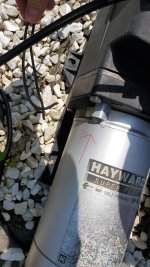My pool water has somehow become electrified! My daughter started dipping her feet while holding onto the metal handrail, and was complaining of feeling a shock run through her. Sure enough, I tested my wetting my hands, putting one hand in the pool, and holding onto the handrail. Felt like when you put a 9V battery on your tongue!
What can I do here? I tried to run a test where I turned off the breaker to the pool light, and then tripped the GFI breaker on my house that feeds to the pool pump. So theoretically all electricity in the vicinity of the pool should have been turned off. STILL the water felt this way. Can water RETAIN electricity? I am lost, and frustrated! Any help is greatly appreciated!
What can I do here? I tried to run a test where I turned off the breaker to the pool light, and then tripped the GFI breaker on my house that feeds to the pool pump. So theoretically all electricity in the vicinity of the pool should have been turned off. STILL the water felt this way. Can water RETAIN electricity? I am lost, and frustrated! Any help is greatly appreciated!




